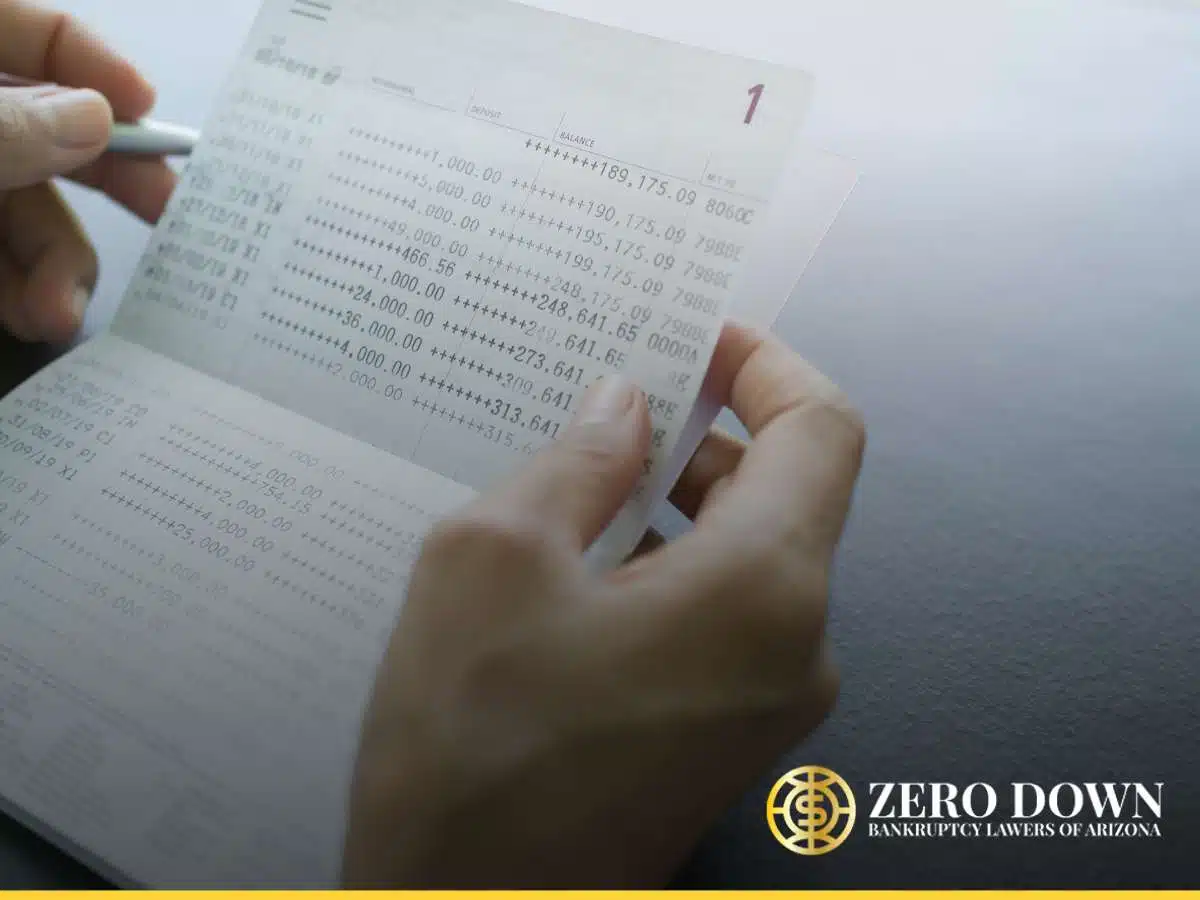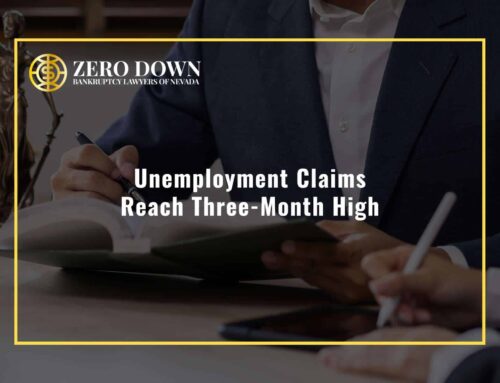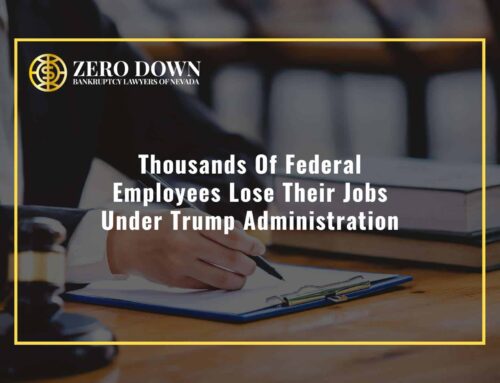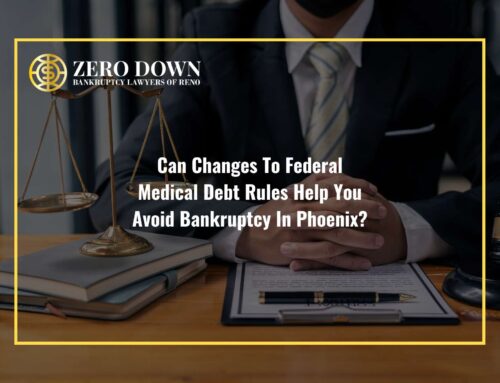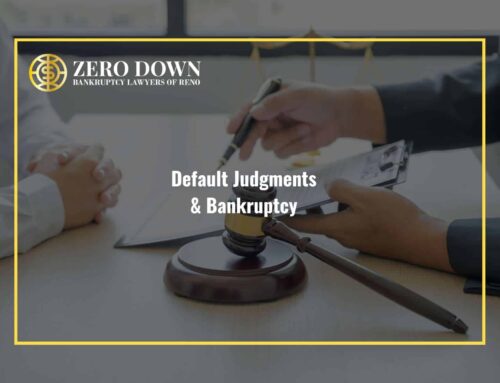Just when it seemed like the dust was beginning to settle from the pandemic, it seemed like the cost of living in Arizona and across the country decided to skyrocket. Most employers haven’t been able to give raises to keep up, as their operating expenses are increasing too. Someone with an hourly wage near the state’s minimum wage may barely be able to do a trip to the grocery store with the paycheck, with basics like eggs costing double or triple what they did just a year ago. That leaves many households struggling to get by and barely making ends meet. If you can’t yourself among them, bankruptcy may be able to set your financial situation straight. Call our Arizona bankruptcy team for your free case evaluation at 602-609-7000.
Living Paycheck To Paycheck
Living paycheck to paycheck means that a household only has enough income to get by, much less saving for an unexpected setback, investment, or retirement. A family that is living paycheck to paycheck may need to wait until payday to fill the gas tank, buy groceries, and more. Being broke can become even more expensive if your bank account charges a low balance fee, you accrue interest on credit cards you can’t pay off, you incur overdraft fees, etc. At the end of 2022, a reported 64% of U.S. families were living paycheck to paycheck. A significant portion of these households earn more than $100,000 per year when earning six figures was a benchmark of financial stability just a few years ago. Families that make more than $100,000 per year are more likely to believe that their financial situations will improve in the next year than families that don’t. Families who believe their financial situations will get worse in the next year cite inflation and financial uncertainty as their reasons.
What Happens In A Financial Emergency
Credit Card Debt
A family living paycheck to paycheck presumably doesn’t have much spare income to set aside in case of emergency. If the family car breaks down, a child is injured at school, or another unexpected expense arises, the family may have few options from which to draw those funds. One option may be to charge the expense on a credit card. This isn’t necessarily a terrible thing- if the family can pay off the balance, they may build their credit history and earn points that can be used for airline miles, cash back, etc. But most credit cards carry a high-interest rate, so if the family can’t pay off the balance within a month or two, it will begin accruing significant interest. Making minimum payments may only pay off the interest, with the balance festering and waiting for the next family emergency to rear its head again. If the family falls too far behind on credit card payments, they will eventually receive a summons from the credit card company or a debt collector. This is notice that the credit card debt has now evolved into a lawsuit. If the plaintiff obtains a judgment against the credit card user, it can eventually be used to garnish their wages. This creates an even deeper financial hole that is more difficult to get out of.
Title Loans
Someone might face a financial emergency when their credit cards are already maxed out and they can’t get approved for new ones. But if they have the title to an asset, such as a vehicle, they may consider utilizing its title for temporary finances. Title loans can help someone in a tight squeeze, but they have strict repayment terms and unexpectedly high-interest rates. Failure to repay a title loan per the term of the loan agreement will result in the lender keeping the title to the asset. This doesn’t necessarily mean they will repossess the asset, but the borrower will not be able to sell or transfer the asset until repaying the loan and regaining their title. This means that the debt has become a secured debt and can no longer be discharged in bankruptcy without repayment.
Eviction
For most families, the largest part of their monthly budget is housing, and for those of us who don’t own, it is usually paid as rent. Most rental agreements only give tenants a few days to make their rent payments before they are considered late. Next, the landlord will typically leave a three days notice on the tenant’s door. That gives the tenant three days to pay their rent, plus any potential late fees, or face eviction. Many people have a skewed eviction, thinking their landlord can switch out the locks and throw them out almost instantly. To the contrary, eviction is a process that can take several months to complete. However, once an eviction is finalized, it will create a black mark all over the tenant’s finances. Not only does it look bad on the tenant’s credit report, but it will be almost impossible to rent a new residence after being evicted for nonpayment of rent. The tenant will also be left with a debt to their former landlord which can include legal fees and interest. Bankruptcy can help families facing eviction, but only if the landlord has not yet obtained a writ of possession.
Repossession
When most people hear the word “repossession,” they think of vehicle repossession, but a home foreclosure is technically a repossession too. Losing either type of asset can be financially devastating to a family. However, the process for repossessing/foreclosing a home is typically much longer and more complicated than repossessing a vehicle. Both assets will be sold at auction by the lender to the highest bidder. If the asset sells for less than the loan’s balance (plus legal fees and interest), the borrower will be left with a repossession deficiency. This is an unsecured debt that can continue to haunt the borrower despite already losing their asset. It can be pursued just like other unsecured debts, such as credit cards.
Can Bankruptcy Help A Family Living Paycheck To Paycheck?
If a family lives paycheck to paycheck but has no debt, bankruptcy probably won’t do much to remedy the situation. But life often comes with unexpected setbacks, so it’s not uncommon for someone who earns just enough for their living situation to incur debt. Bankruptcy will be more useful in addressing some types of debts than others. Unsecured debts- think unpaid credit cards, medical bills, repossession deficiencies, and the like- can be cleared in a properly-executed bankruptcy filing. Bankruptcy can stop wage garnishment and clear credit card interest fees, which can make it easier to pay the rest of your monthly bills. If a family has old debts lingering and marring their credit report, clearing them through bankruptcy can help them obtain better interest rates for financing in the future. However, depending on the types of debts a person has, negotiation, an offer in compromise, or another method of debt relief could be more beneficial than bankruptcy. Without extensive legal and financial knowledge, it can be difficult to make the decision between these options on your own. For your free case evaluation with one of our skilled Arizona bankruptcy professionals, call 602-609-7000.
Arizona Offices
Phoenix Location:
343 W Roosevelt Street, Suite #100
Phoenix, AZ 85003
Email: [email protected]
Phone: 602-609-7000
Mesa Location:
1731 West Baseline Rd., Suite 101
Mesa, AZ 85202
Email: [email protected]
Glendale Location:
20325 N 51st Avenue, Suite #134
Glendale, AZ 85308
Email: [email protected]
Tucson Location:
2 East Congress, Suite #900
Tucson, AZ 85701
Email: [email protected]

